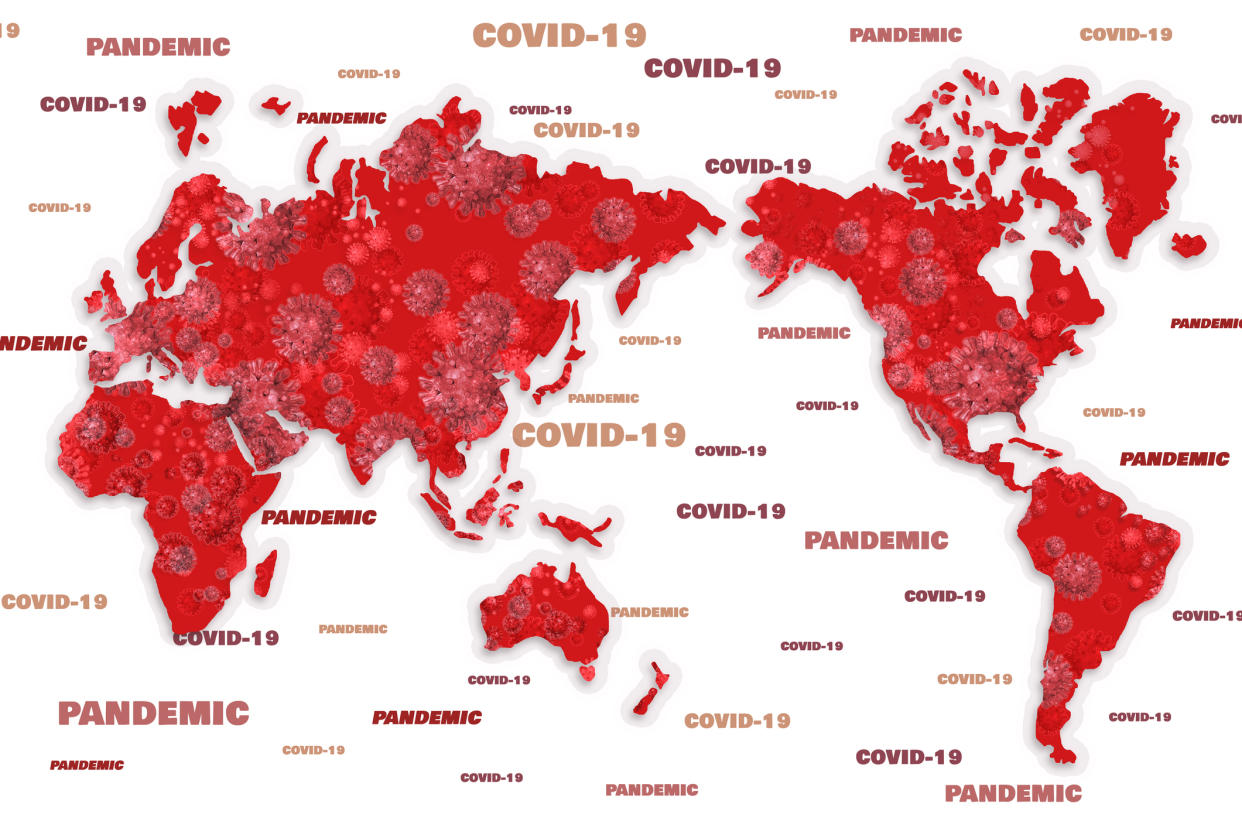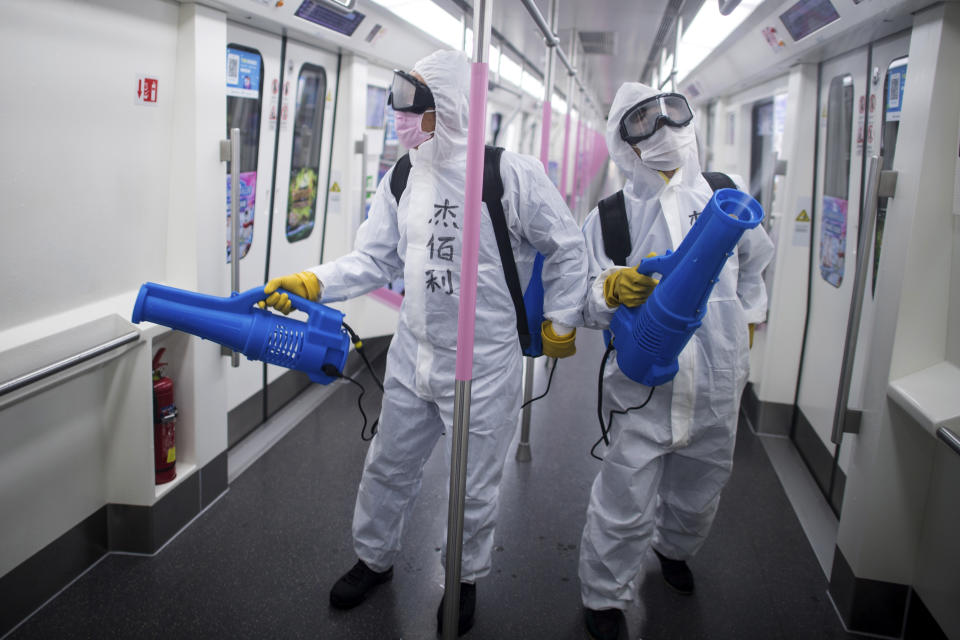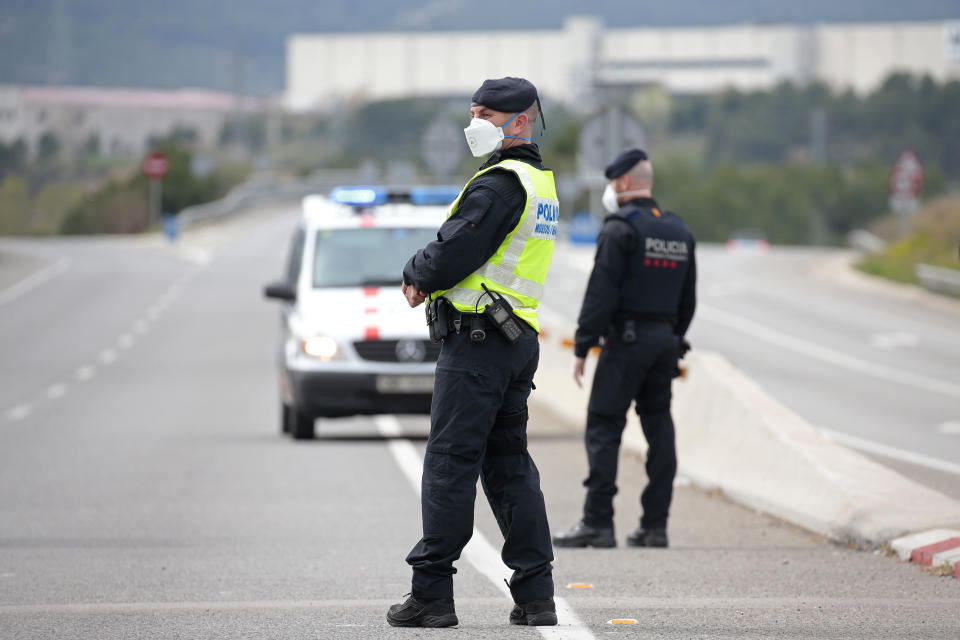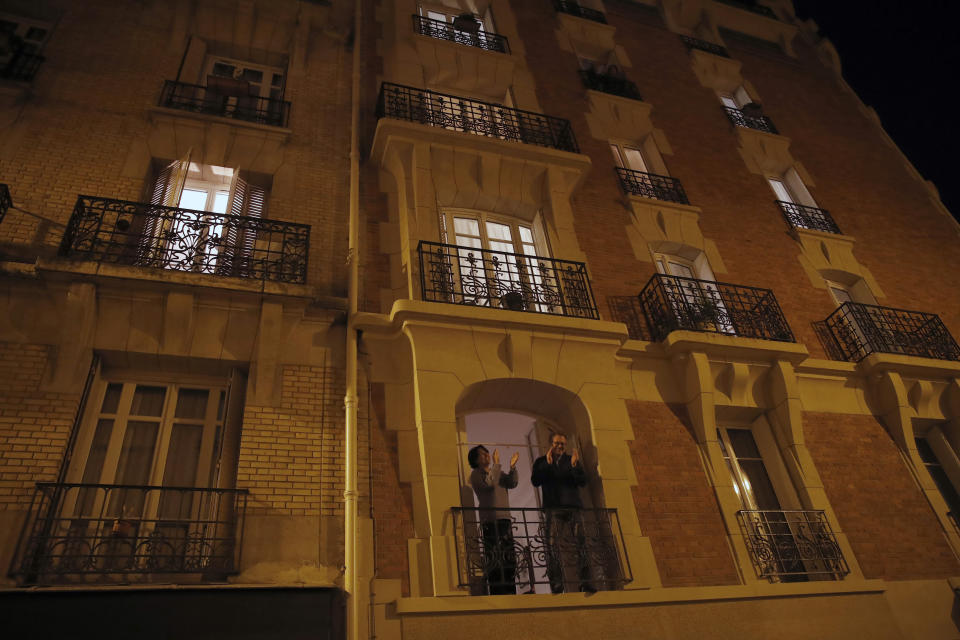Coronavirus: More than a billion people on the planet have been told to stay at home

The coronavirus pandemic has become a global health crisis.
According to latest statistics from the CDC, 162 countries have recorded confirmed cases of the virus and, increasingly, many of these countries are taking extreme measures which has resulted, in one estimate at least, in a billion people being asked to stay at home.
The starting statistic, which has been worked out by the AFP news agency, signifies just how big an issue coronavirus has become. It means around one-fifth of people on our planet have been told not to venture outside unless absolutely necessary.
In the UK, Boris Johnson has announced an Italy-style lockdown to fight the outbreak with gatherings of more than two people banned.
Latest coronavirus news, updates and advice
Live: Follow all the latest updates from the UK and around the world
Fact-checker: The number of COVID-19 cases in your local area
Explained: Symptoms, latest advice and how it compares to the flu
Police will enforce the new restrictions, including by issuing fines and dispersing gatherings. Almost all shops are required to shut and draconian measures on when people can leave have been implemented.
The PM made the move after the UK’s coronavirus death toll jumped by 54 people in one day, bringing the total to 335.
Other nations, most notably China and Italy, have implemented lockdowns of varying severity. Here is a breakdown of the measures other countries have taken.
China

China locked down Wuhan, where COVID-19 is thought to have originated, on 23 January.
In what was the most extreme lockdown so far, public transport was suspended and cars were banned from the roads.
Home visits were barred by management of residential blocks, apart from people providing help for the elderly or disabled.
Read more: Piers Morgan's slams 'selfish parents' for sending kids to school amid pandemic
Most shops were closed; only pharmacies and supermarkets remained open and people were only allowed to leave their homes to get essential supplies or medicine.
On Monday, China reported no new local cases of coronavirus, but confirmed another 39 infections brought in from overseas, two months after taking the dramatic steps to lock down some 56 million people in Wuhan and the surrounding province of Hubei.
Italy

The country at the centre of the crisis in Europe exceeded China’s death toll last week despite having fewer confirmed infections and a far smaller population.
Italy's death toll is now at 6,077, with the number of cases at 63,927.
Its government has banned any movement inside the country and closed all non-essential businesses as it desperately seeks to stem the virus’ spread.
All gatherings have been banned and all museums and cultural venues are closed, as are nightclubs, restaurants, cinemas and theatres.
Police squads in Rome are checking documents and fining those outside without a valid excuse.
Spain

The total number of cases in Spain is 33,089. Some 2,206 have died and 3,355 have recovered.
Spaniards are beginning their second week of confinement as worry spreads over the possible collapse of the country’s healthcare system amid an influx of COVID-19 patients requiring assisted respiration.
Read more: Apple’s Siri and Google Assistant now help if you ask, ‘Do I have coronavirus?’
The Spanish government is seeking parliament’s approval to extend the state emergency for two more weeks until April 11, but harsher measures such as halting overall industrial production have been ruled out.
France

France's lockdown began on 17 March.
People are barred from leaving home except to buy food or essentials, but they have to carry a special document, certifying why they are outside, to show to police.
France closed all bars, restaurants and non-essential shops last Saturday.
Creches, schools and universities were all closed from 16 March.
United States
Donald Trump announced on Sunday that the federal government has activated the National Guard to assist New York, California and Washington, three of the states hit hardest by coronavirus.
Residents of California have been told to shelter-in-place to curb its spread.
The order does not confine people to their homes but recommends they stay inside unless they are getting essential items.
Read more: How many coronavirus cases are there in your area?
Meanwhile, all non-essential businesses in New York have shut down, as the city is considered the country's coronavirus epicentre.
Restaurants and bars have all shut but can deliver to homes. New York governor Andrew Cuomo warned residents that those who defy the "stay at home" order could receive civil fines.
New Zealand
People must stay home and all non-essential businesses and activities cease when the lockdown begins on Wednesday night.
The decision came as health officials announced another 36 confirmed cases of Covid-19, bringing the total to 102. Most were tied to travel overseas, but crucially, two of the cases could not be traced and officials believe they are evidence of a local outbreak.
New Zealand, which has a population of five million, already has closed its borders to all but citizens and residents.
Canada
Canadian Prime Minister Justin Trudeau has said “enough is enough, go home and stay home”.
Mr Trudeau said staying at home is a duty and the government will enforce it if necessary.
He said images of people out enjoying the sunshine in large groups is “extremely concerning”.
He made the comments outside his residence while in self-isolation after his wife tested positive for the virus.
Poland
Polish police said they have carried out inspections of nearly 80,000 people subjected to forced quarantine because of the coronavirus pandemic and found 318 cases of people violating the quarantine.
The Polish government has enacted increasingly firm measures in order to slow the spread of Covid-19. Last week the government increased penalties for quarantine non-compliance. The authorities also extended an initial two-week closure of all schools in the country for an additional two weeks, lasting through Easter.
Additionally, they introduced a phone app to track those in home quarantine.
Pakistan
Authorities in southern Pakistan have begun a two-week complete lockdown, as the number of positive coronavirus tests jumped to 799 across the country.
Murad Ali Shah, the chief minister in the southern Sindh province, has imposed a ban on the movement of people, saying the measure was aimed at saving lives.
However, Prime Minister Imran Khan has avoided a nationwide lockdown, but he urged people to stay at homes voluntarily.

 Yahoo News
Yahoo News 

